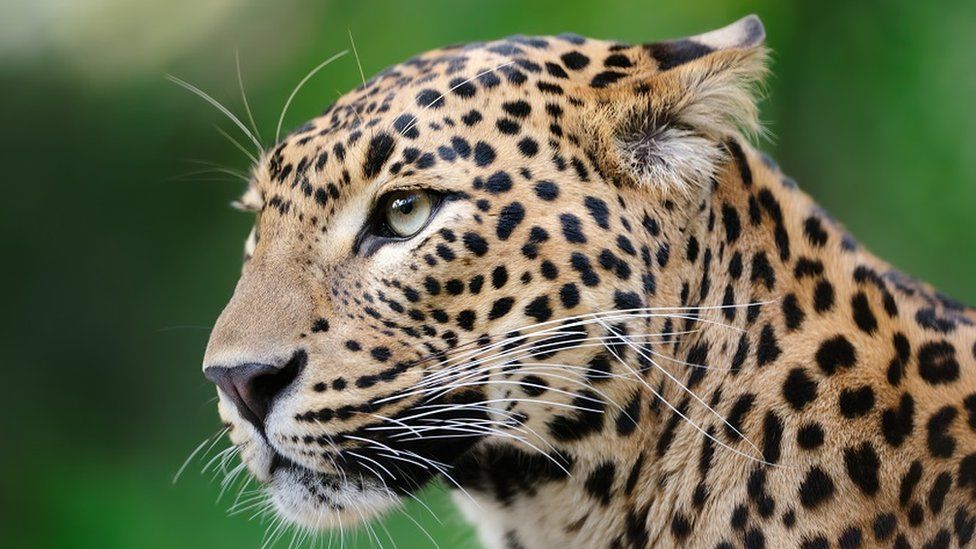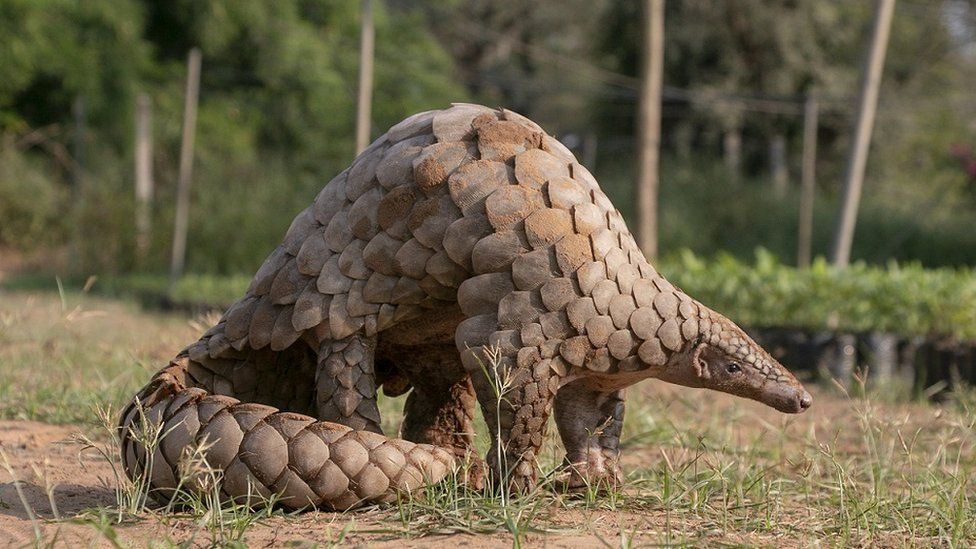Big banks linked to products with pangolin parts
 GETTY IMAGES
GETTY IMAGESGlobal banking giants are investing in companies which produce traditional Chinese medicines containing leopard and pangolin parts, a report has found.
Both species are classed as threatened.
The Environmental Investigation Authority (EIA) identified 62 banks and financial institutions which are investing in three pharmaceutical groups making nine products which they say contain leopard or pangolin.
The BBC has contacted the companies in question for comment.
The companies include UK financial services giants such as HSBC, Prudential, and Legal & General, as well as global investment firms including Goldman Sachs, UBS, Deutsche Bank and BlackRock.
Leopards and pangolins are threatened, which means they are likely to become endangered in the foreseeable future. Both are also listed on the CITES (Convention on International Trade in Endangered Species of Wild Fauna and Flora) treaty which prohibits international commercial trade in them and their parts, in a bid to ensure their survival in the wild is not threatened.
The three pharmaceutical companies, highlighted in the EIA report are Tong Ren Tang group, Tianjin Pharmaceutical group and Jilin Aodong Pharmaceutical Group.
Not all the companies listed in the EIA report invest in all three of them, but they all invest in at least one.
In traditional Chinese medicine (TCM) leopard bone is used as a tiger bone substitute. Tiger bone is believed to strengthen bones and sinews, provide pain relief and help get rid of wind. Pangolin scales are said to aid blood circulation, lactation and help with rheumatic pain relief. These claims are not backed up by scientific fact.
Following the report's publication, EIA Legal & Policy Specialist Avinash Basker called on the Chinese government to "fulfil CITES recommendations and prohibit the use of the body parts of leopards, pangolins, tigers and rhinos from all sources for all commercial purposes in its domestic markets".
"The use of highly threatened animals such as leopards, pangolins, rhino and tigers in traditional medicine products disregards CITES recommendations made by the international community to protect these species. This is use on an effectively industrial scale which can only push these species ever-closer to extinction, simultaneously sending mixed messages to consumers, fuelling demand for their parts and derivatives and tainting the global reputation of TCM," he said.
 GETTY IMAGES
GETTY IMAGES"It's particularly disappointing to see so many major banks and financial institutions effectively endorsing this damaging exploitation, especially as so many have pledged to do otherwise," he added. "If their environmental credentials are to have any credibility, they need to divest from TCM manufacturers using threatened species at the soonest opportunity."
The EIA said it was unable to find how the leopard or pangolin derivatives were being sourced.
In a statement, HSBC said it is "not a direct investor and does not have direct exposure to these companies". It added that the EIA report includes a response from HSBC Global Asset Management Canada that the company's "investments in the TCM companies were limited to passive or 'tracker' funds rather than actively managed funds". This means that funds are automatically invested in shares based on a linked index - for example, the FTSE 100 - which they track.
Deutsche Bank said that the report focuses on asset managers and directed the BBC to DWS, the asset management company that was once part of DB but is now a separate listed entity.
In a statement, DWS said it has "different ESG-related [environmental, social and governance] policies that provide guidance on the integration of ESG information into our investment processes, engagement, and proxy voting activities, where we combine our voting rights for active and passive funds.
"Globally, there are no actively managed DWS funds invested in any of these three issuers," it said.
Legal & General Investment Management said it "manages many funds against a range of different index providers to meet a wide variety of different client demands".
"LGIM is aware that one of the key drivers of nature-loss, as identified by Intergovernmental Science-Policy Platform on Biodiversity and Ecosystem Service (IPBES), is 'natural resource use and exploitation', that covers exploitation of wild species," the firm said.
"As such, we are developing a 'nature framework' that targets these IPBES drivers, that includes integration and disclosure of high-quality, consistent, location-specific data, that relates to company behaviour around these key nature-related issues."
BlackRock declined to comment.
The BBC has approached UBS, Tong Ren Tang group, Tianjin Pharmaceutical group and Jilin Aodong Pharmaceutical Group, for comment.
No comments:
Post a Comment